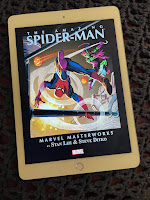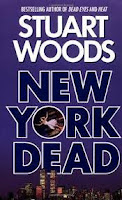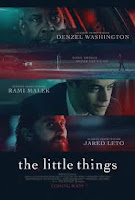When The Sacred Ginmill Closes is Lawrence Block's sixth
Matthew Scudder novel, and another fine, interesting reading experience. This 1986 entry in the ongoing saga of the unofficial PI who roams the streets of New York was a little different from its predecessors, however, but not in any bad ways. Just ways that made it, well, again, interesting. Anyway, here's what's different:
1) Unlike the previous five books, which took place one after the other, this story goes back in time a bit to tell an untold story from Matt's drinking days, which had finally (and pretty inarguably, fortunately) started to come to a close at the end of the last book, Eight Million Ways To Die. It's all very clear, though: a still-sober Scudder at the outset tells us that he's going to talk about a period of time from his drinking days, a time when several notable things happened to him. Once it's clear that Scudder hasn't relapsed since the last book, we can sit back and enjoy this story from his more out-of-control days.
2) The novel is richer, longer, and more literary than the others, which weren't exactly fast, mindless, slam-bam action thrillers, either. It features Matt working three different cases (two more than usual), moving back and forth between them, with the glue holding the novel together being many, many conversations in bars among Matt and his friends and colleagues. While the cases are often the subject of these conversations, they're also frequently about, well, life, the universe, and everything. Hence, the literary feel. It's also sort of a deliberate tribute by the author to the one undeniably good thing about being a heavy drinker who hangs out with other heavy drinkers: the camaraderie and wonderful conversations.
3) This is the first novel to recycle a plot from a previous work, namely one of the author's more entertaining short stories: By the Dawn's Early Light. One of the three cases Matt works on here is the same case from that short story. Not a similar case, not somewhat adapted from that case, but the same case, right down to the dialog during the investigation. I mean, it's not a big deal, the short story was a good one (it's free for customers to listen to on Audible.com, by the way) and Block probably wanted to give the story the wider audience of a novel. It was kind of interesting, in fact, to see how Block doled out the story in small helpings throughout the novel instead of giving it the full, uninterrupted attention of a concise short story.
4) The novel ends by again reminding us that this story was being told to us from a point in the future, and many years in the future we're finally told, when Matt's young sons (a frequent fixture in the past novels) are now grown up and in college and the military, and Matt's ex-wife Anita has remarried. Again, just kind of interesting. I guess that means that the rest of the Scudder novels I need to read (and any others Block may write) might also be looks back to particular times in Matt's career, during both his drinking and non-drinking days. Or maybe not. The rest might be about the older Scudder who narrates this story. It'll be fun to see!
In any event, When The Sacred Ginmill Closes was another great visit to the streets of New York of decades past (the mid-1970's when we're fully into the flashback), with Matt Scudder again walking those streets and figuring out what needs to be figured out, as we get all the pleasure and entertainment.



















